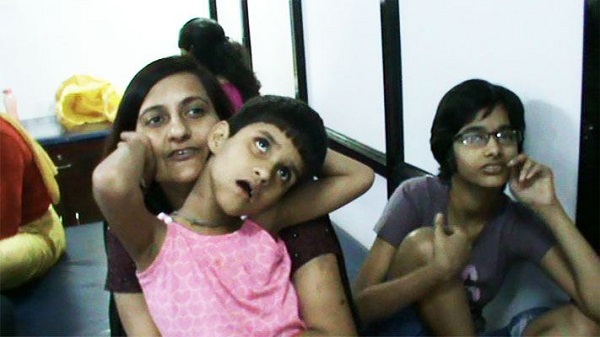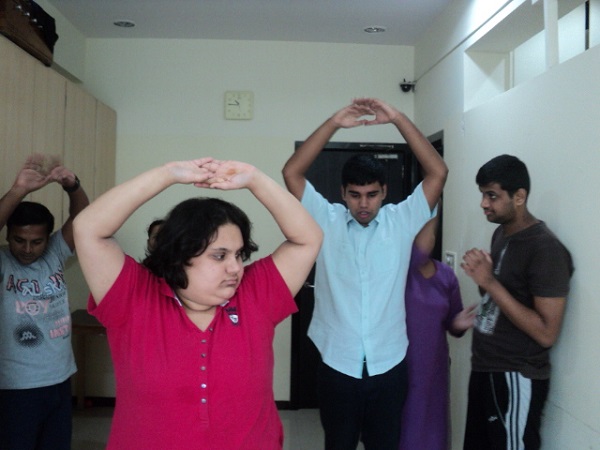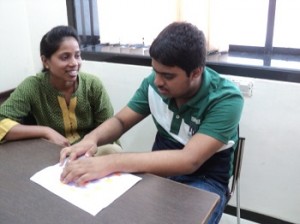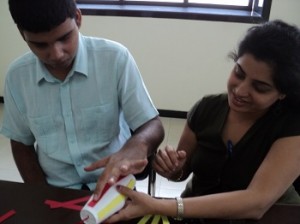Dealing with autism in your child is more than a daily challenge – but what doesn’t challenge you, won’t change you.
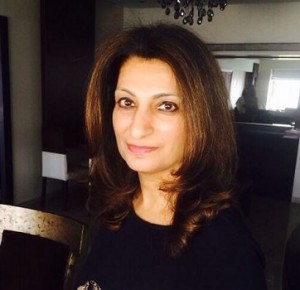 by Kamini Lakhani
by Kamini Lakhani
Part 6 of the Autism Diaries – It’s when you go on when you think you can’t that defines who you are
Recently, I had ‘one of those days’. You know, when everything seems to be going wrong. There were difficult meetings, distraught moms, family issues…
The thing about being professional is that you have to ‘show up’ – and show up with a smile!
Meeting 1 was with the family of a 14-year-old, a case of High Functioning Autism, integrated into regular school. What could be the problem? It turns out: plenty. He’s being bullied at school, which is causing him and his parents tremendous stress. Added to this, he has an elephantine memory (not good in this case). So he remembers everything that was said to him since grade 3! He suffers from low self esteem, too. He can’t state one good thing about himself. Imagine how badly his psyche has been affected.
I totally understand what the parents are going through. When you’re just this distance away from ‘recovery’, it is the most painful! So near…and yet so far. His mother was experiencing a real low that day. In all my years of working with her, I had never seen her break down like this.
Meeting 2 – with a mom of an 18-year-old delightful young lady who has come a long way. Mom was upset after attending a wedding. There was nothing really ‘wrong’. But what was creating turmoil within mom, were her own feelings. Seeing her daughter with her ‘normal’ cousins brought up the pain again. Why wasn’t her daughter like her other cousins? Would she ever make plans with friends and go out? Would she ever get married?
Both scenarios shook me up. I understand what low self esteem feels like. I’m afraid of the damage and the repercussions on the child. I understand what Mom 2 felt, too. My nephew is exactly the same age as my son – they were born just three weeks apart. As much as I count my blessings, it hurts that my Mohit did not go to university and that he may never marry and ‘settle down’ like his other cousins.
We’re working on the best outcomes for all our families. At that point of time, both mothers were looking for reassurance and understanding. I wanted to hug them and say “I understand”. What I 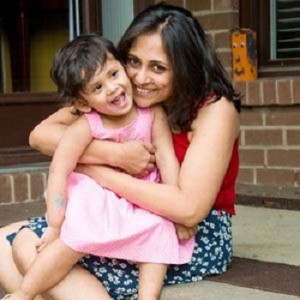 did not want to do was give superfluous advice. It had to be heartfelt. It had to be something that I had experienced, or else, it would be empty.
did not want to do was give superfluous advice. It had to be heartfelt. It had to be something that I had experienced, or else, it would be empty.
What had I experienced that helped me emerge from the blues? I thought of my yoga class (my favourite!). Once a month, my teacher gives me a free hand to push my limits and do as many ‘Surya Namaskars’ as I want. I take the challenge to push myself to my maximum limits. I come up with a number that is beyond my capacity. I may feel that I’m about to collapse, that I should stop. But I don’t. I want to nail it. I want to feel the exhilaration and the rush. I want to experience the joy of victory and of pushing myself off the cliff!
So where I am going with all this?
When I achieve something that is physically very difficult for me, it gives me the courage and the confidence to undertake something that is mentally challenging. The mental follows the physical. After a strenuous class like this, my mind state is altered. I can deal with what I’m going through. I’m in a high-life state. The common factor is the determination to continue – especially when the going gets tough.
Here is what my spiritual mentor Dr Daisaku Ikeda says:
“Whether we regard difficulties in life as misfortune or whether we view them as good fortune depends entirely on how much we have forged our inner determination. It all depends on our attitude or inner state of life. With a dauntless spirit, we can lead a cheerful and thoroughly enjoyable life. We can develop a ‘self’ of such fortitude that we can look forward to life’s trials and tribulations with a sense of profound elation and joy. Come on, obstacles! I’ve been expecting you! This is the chance that I’ve been waiting for!”
I’m certainly not there as yet, but I would definitely want to be. We have to remember that we are running a marathon and not a sprint. And that’s exactly what I told these incredible moms. Are we going to ride these waves of adversity, or are we going to drown?
Have you experienced something like this? Have you thrown yourself off a ‘cliff’ and emerged stronger? I would love to hear your view point. And if you have questions related to autism and other learning conditions, feel free to email me at saiconnections01@gmail.com. I will be glad to help.
Kamini Lakhani is the founder of SAI Connections. She is a Behaviour Analyst, an RDI (Relationship Development Intervention) Consultant, Supervisor and Trainer responsible for RDI professional training in India and the Middle East. She is the mother of an adult on the Autism Spectrum. She is also a member of Forum for Autism..
Next: Why we hurt ourselves and people we love and how to fix it.
(Pictures courtesy stemcellforautism.com, www.parentingnation.in. Images used for representation purpose only)
